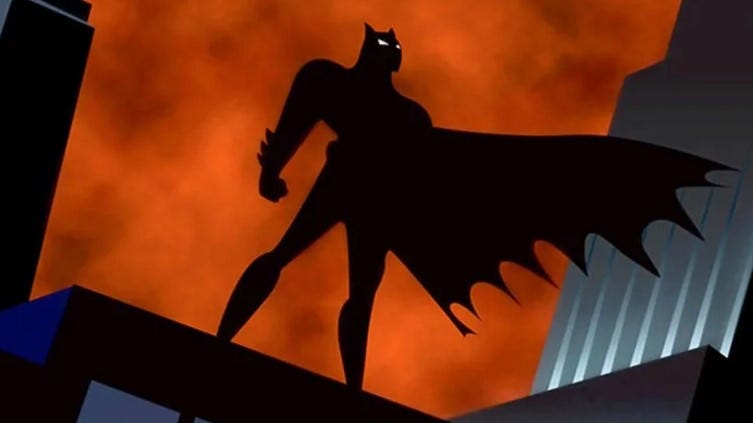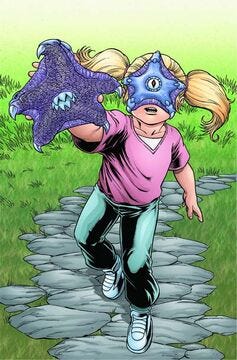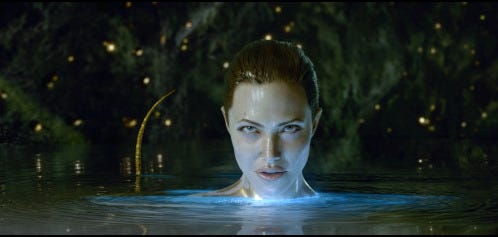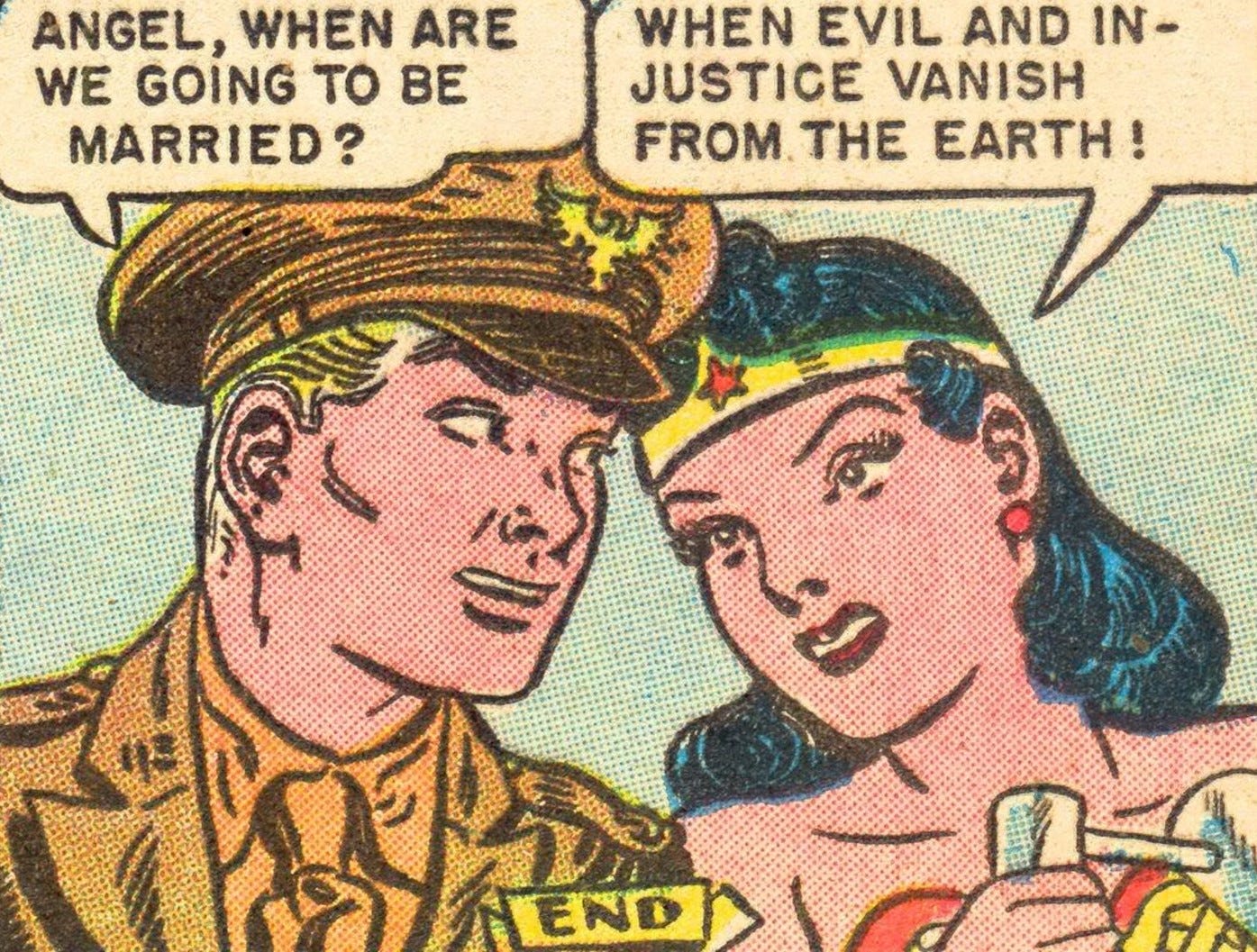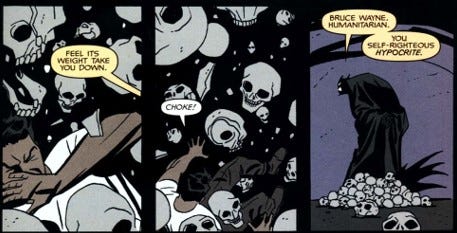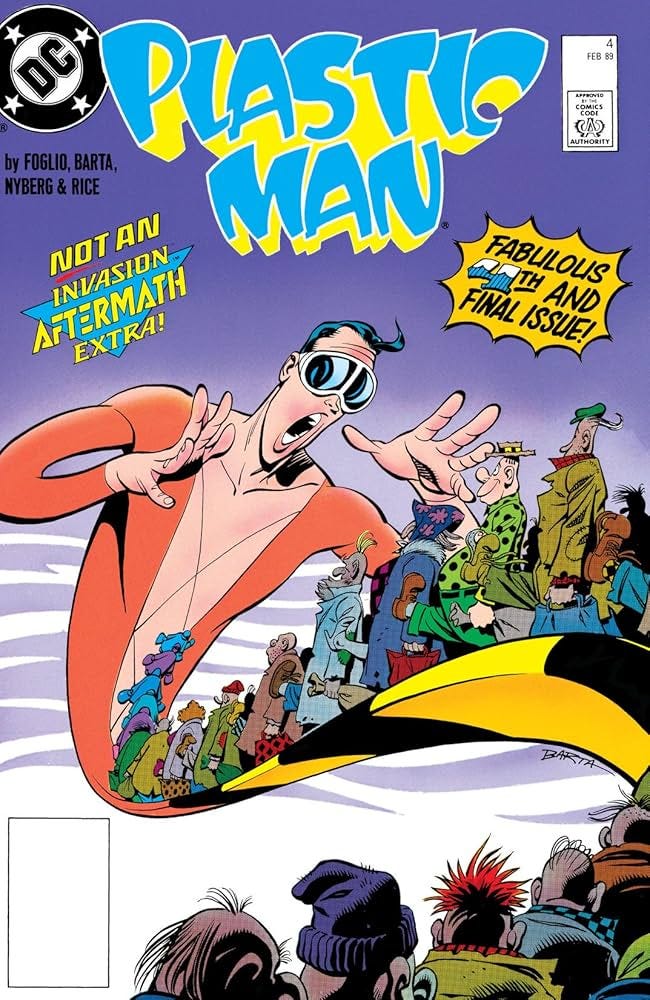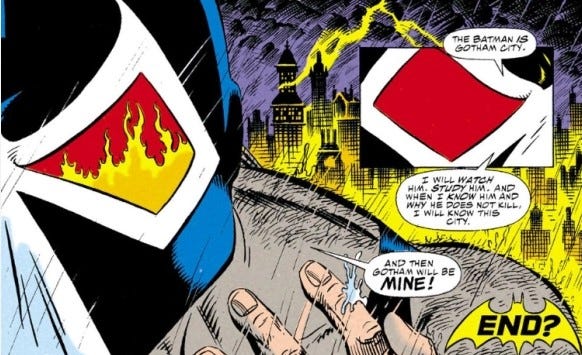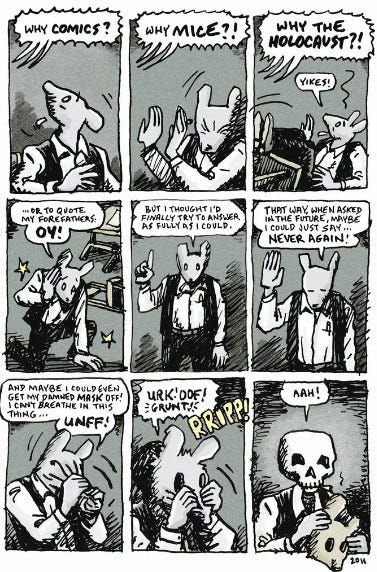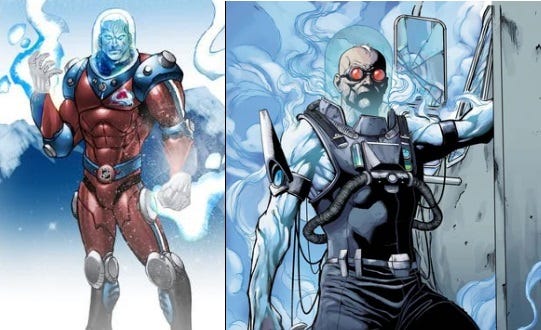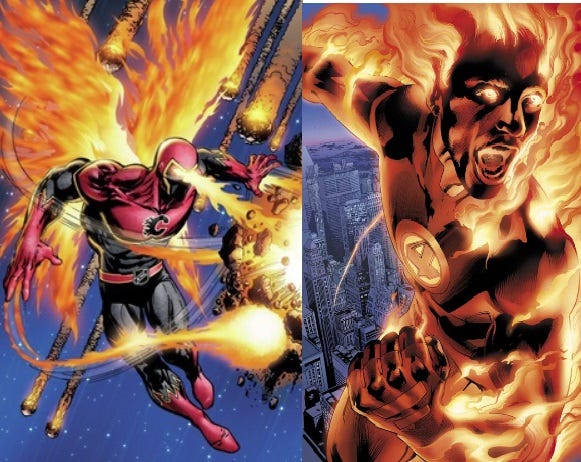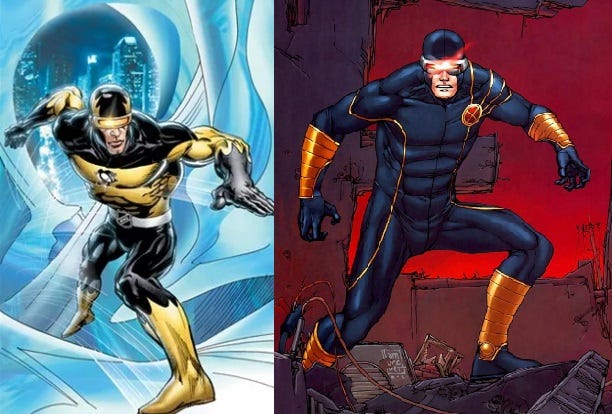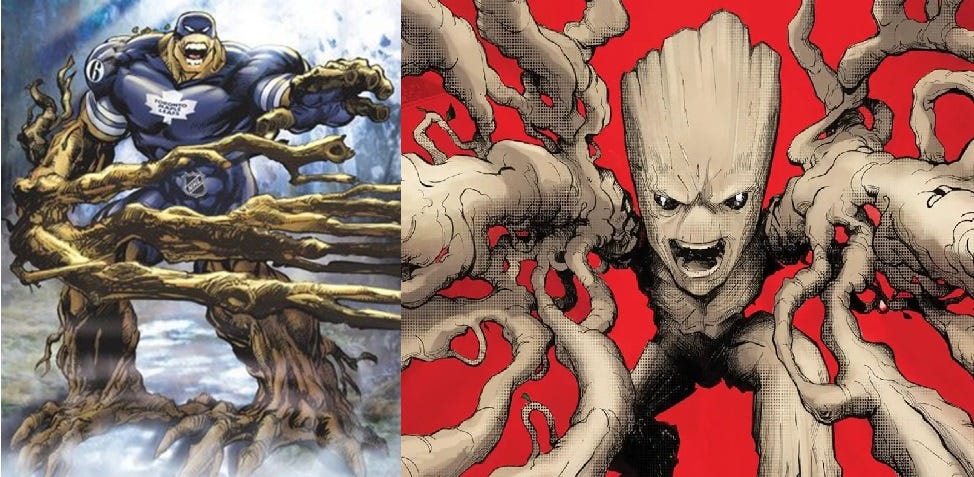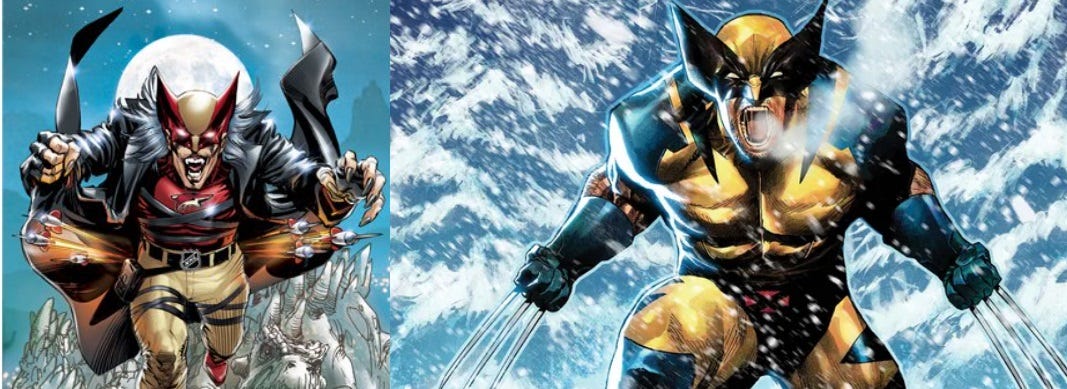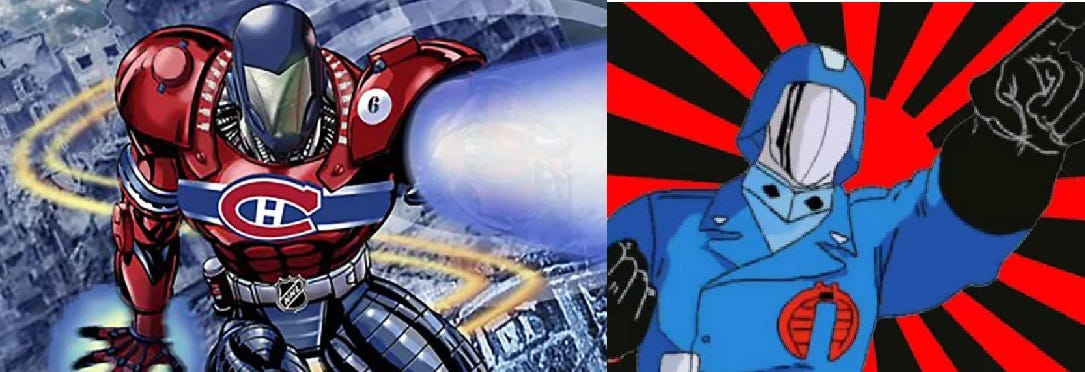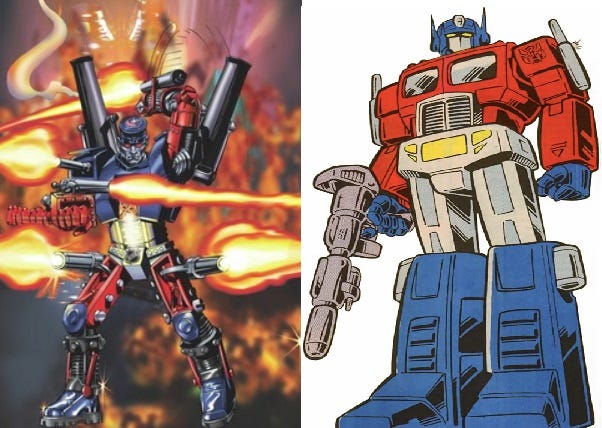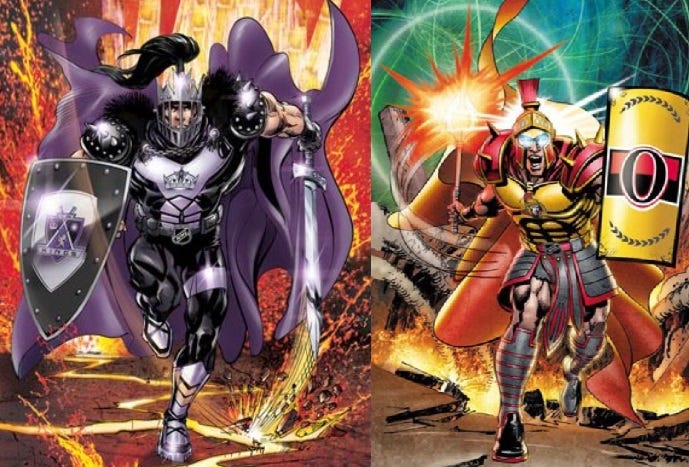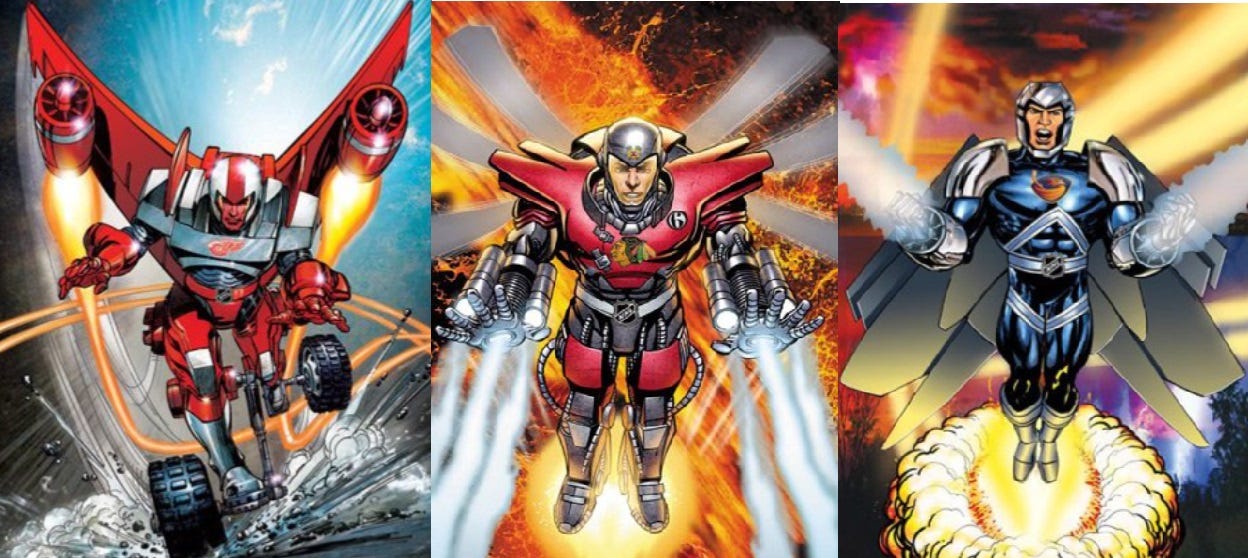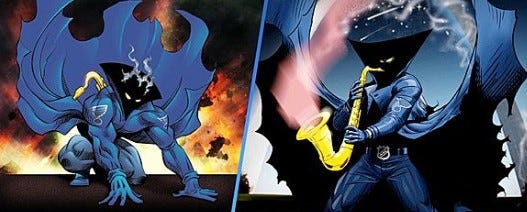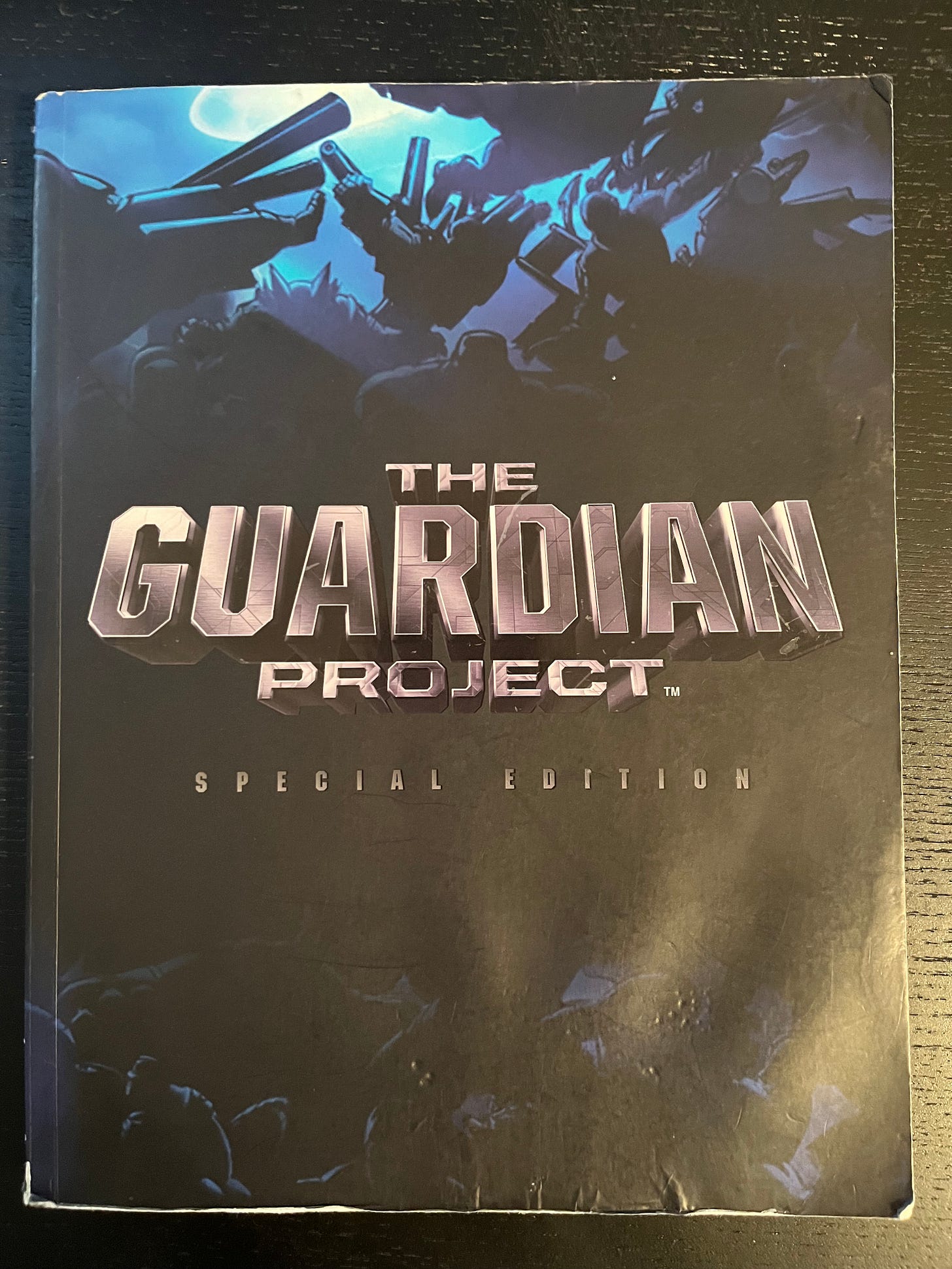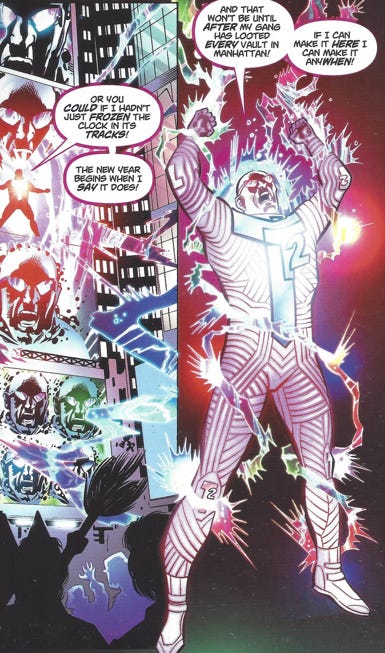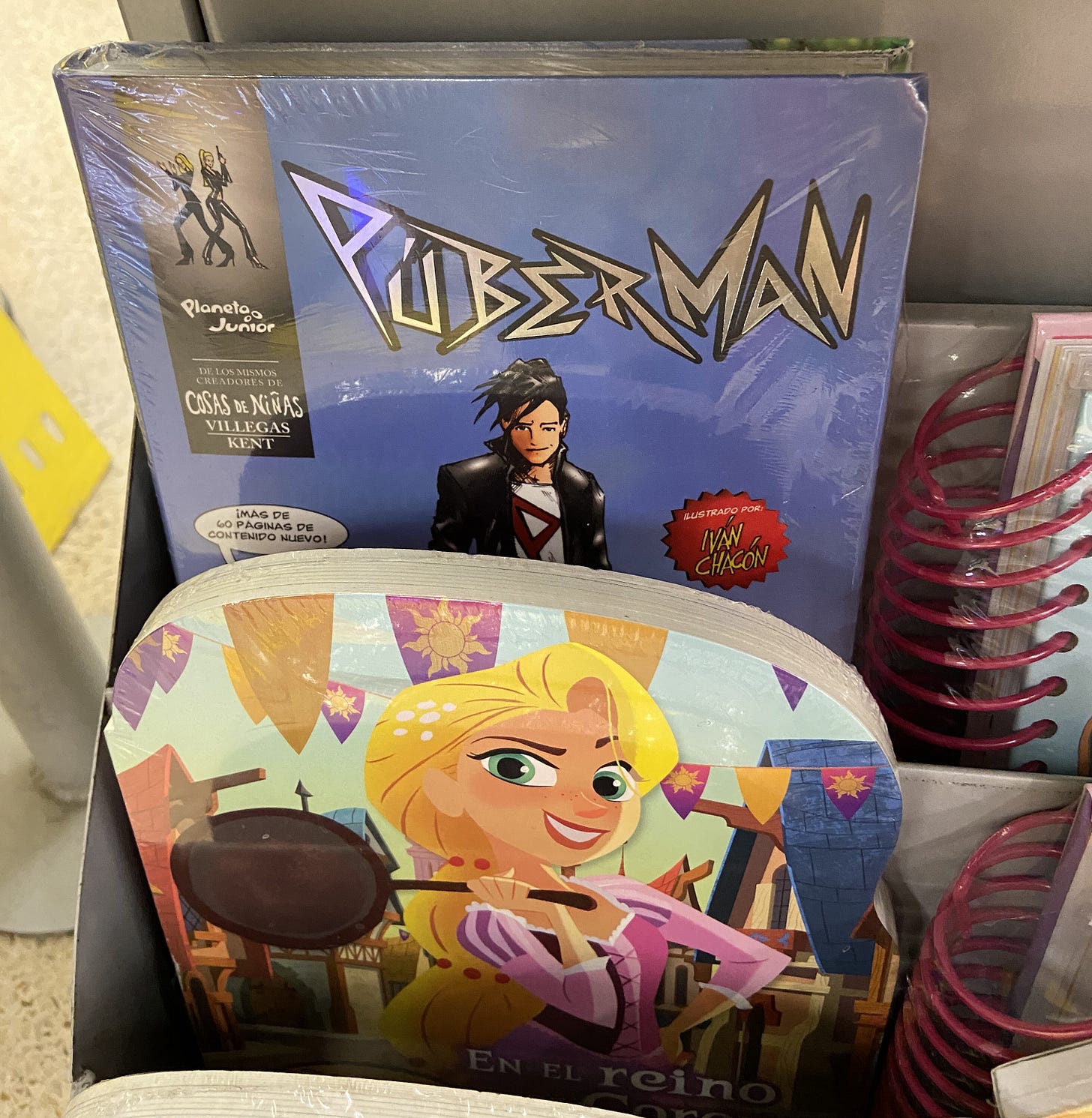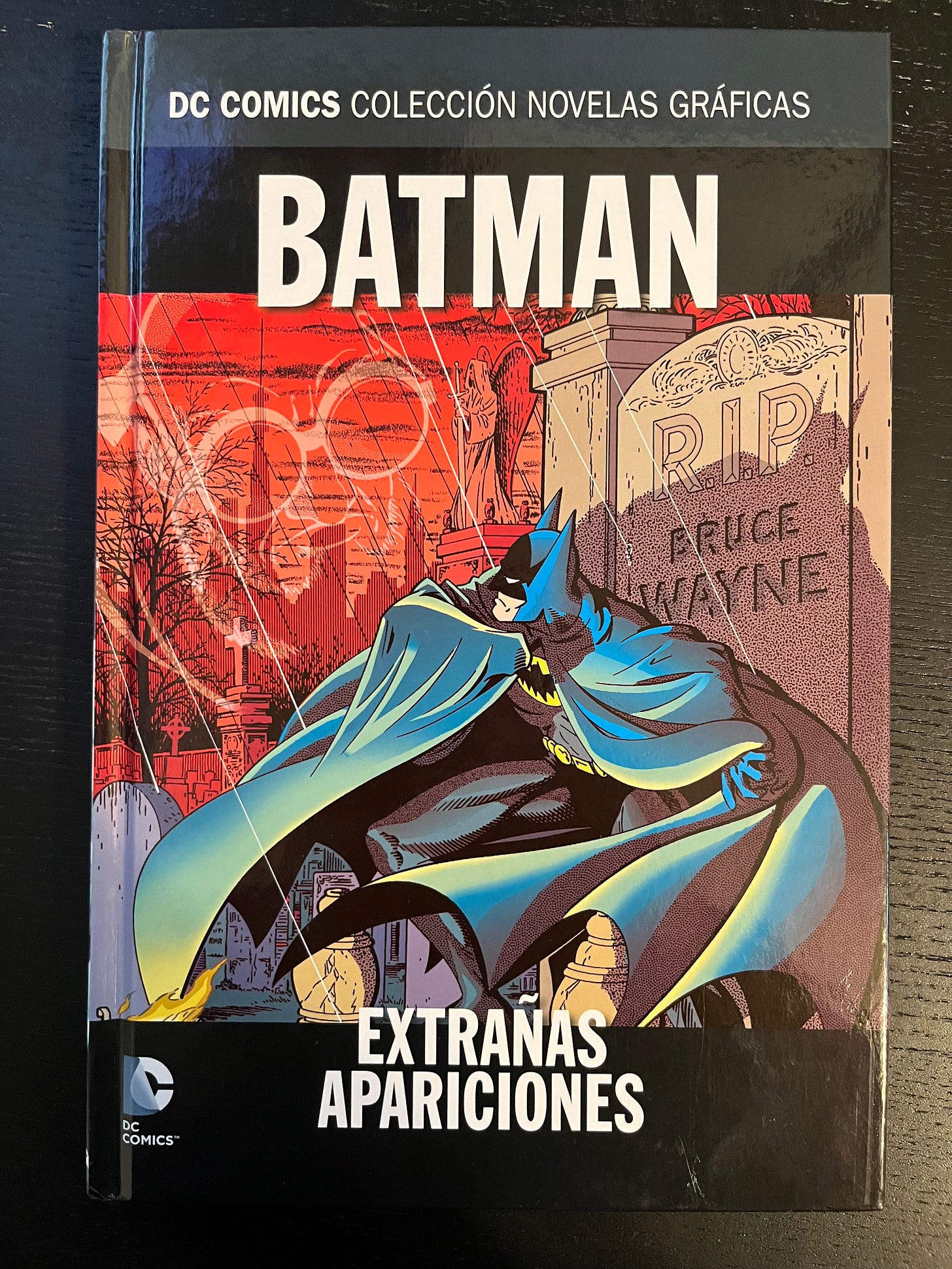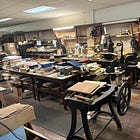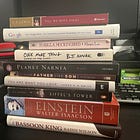My favorite babysitter wasn't our neighbor Shelly, it was the television. As a parent, I have strict rules for my children’s TV viewing. We don't have a cable subscription and my kids are only allowed to spend roughly one hour a night in front of the flatscreen after dinner. This was not how I was raised.
Our TV was my best friend. My dad worked from a home office and my mom didn't return for about two hours after I arrived back from school, so my idle hours revolved around a steady stream of Animaniacs, Rugrats, Doug, Johnny Bravo, Garfield, and my favorite, Batman: The Animated Series.
I had memorized the network schedules long ago, at any given half hour I knew exactly where I needed to be. Genera1ly, my older brothers were either working at Skagway Grocery or doing cool older kid stuff, leaving the remote entirely under my control, but on one afternoon I was pissed to find that Jason had claimed the television when the caped crusader (voiced by Kevin Conroy) was scheduled to be pummeling the clown prince (voiced by Mark Hamill). I was about to utter my disgust, when I took a moment to see what he was watching.
"Do you like Batman?”
"Yeah, I like it"
“Me too.”
Anyone with siblings can attest, there aren't a lot of moments growing up when you feel a familial bond. That tends to come later in life, as maturity grants you perspective and you realize just how much you can relate to the people that had the exact same upbringing as yourself. Somehow, inexplicably, it dawns on you that you actually kind of like them. It turns out, you have quite a bit in common. But during adolescence, they present an obstacle. Competition. Rivals. Someone that got to the remote before you and ruined your after-school plans.
On that afternoon, Jason and I were brothers. I had never felt so close.
●●●
The Batman Animated Series wasn't the only 1990s vintage superhero cartoon out there, but it was the best. There was a dark tone that made me feel more grown up. The fact that my older brother didn't tease me the way he did about Pokémon made me feel accepted. Validated. I wasn't a little kid, I watched Batman.
Most kids in my generation attribute their love of a particular superhero to cartoons. We didn't grow up reading comic books like the Vietnam era that preceded us, we were latch-key kids with a remote in hand. There was a Superman cartoon. But it sucked. His villains were just dumb and unbelievable. Bizarro? A guy that sees a cat stuck in a tree and thinks he needs to save the tree because in his universe everything is opposite? Come-on, this is nonsense. Comic books can contain simple plots and dull storylines since the experience is also dependent on factors like the quality of the artwork, but in the world of TV animation, your story and characters better be good. And Superman's were dumb as hell. After watching a starfish monster that brainwashed people by getting stuck to their faces, I changed the channel.
Spiderman was my second favorite, and like Batman, it was because of the gripping narrative and fascinating villains. I heard the X-Men cartoon was good too, but I wasn't allowed to watch it because it talked about evolution and some people had psychic powers. This was clearly the devil's handiwork.
The current generation will undoubtedly have their favorite heroes influenced by the onslaught of Marvel movies, which wasn’t such a bad thing until they decided that each new film had to represent thirteen different social causes and feature a transgender Swahili character with only one nostril and a hideous deformity, all in the name of representation. The first Marvel movies were just about being fucking sweet, the artform seems to work better that way.
As I age, the imprint of Batman and Spiderman cartoons helped those two heroes earn the gold and silver positions in my favorite heroes list, but they were aided by the brilliant movie storytelling at the hands of Christopher Nolan and Tobey Maguire. As an adult, you need something you can identify with to sustain your passions. You need a mythology.
The binary battle between the good guys and bad guys is a timeless epic, and if the hero has a kick ass outfit, that'll be good enough for a while. But at a certain point you need to know why this guy cares. What are his motives? What is his drive? And perhaps even more importantly, why would any bad guy ever get in the way of that? My five-year-old son is content with slamming two action figures together until one is arbitrarily defeated, but the superhero industry needs something more durable than injection molded plastic to capture the minds and hearts of the target audience with disposable income. They need a legend.
Heroes were around before Stan Lee. The pagan legends of Hercules and Dionysus are practically household names still. Texts like Beowulf are timeless, the only way you can screw them up is by making a poorly animated Angelina Jolie lizard lady.
It's not hard to understand why Marvel decided to just say 'fuck it' and made Thor the Norse god of Thunder into an Avenger. As the saying goes, if it’s not broken, then turn it into a movie franchise and call it your own. There is something in the human condition that needs a figure, a savior, to latch onto. We see a struggle, an evil, in the world we live in. We feel how futile our own attempts are at trying to fix things. We've tried. We've failed. We need something—someone— greater than ourselves to make the world right. We need a symbol.
●●●
"A staple of the superhero mythology is: there's the superhero and there's the alter ego. Batman is actually Bruce Wayne, Spiderman is actually Peter Parker. When that character wakes up in the morning, he's Peter Parker. He has to put on a costume to become Spiderman. And it is in THAT characteristic Superman stands alone. Superman didn’t become Superman. Superman was born Superman. When Superman wakes up in the morning, he's Superman. His alter ego is Clark Kent. His outfit with the big red 'S', that's the blanket he was wrapped in as a baby when the Kents found him, those are his clothes. What Kent wears, the glasses, the business suit, THAT'S the costume. THAT'S the costume Superman wears to blend in with us. Clark Kent is how Superman views us. And what are the characteristics of Clark Kent? He's weak. He's unsure of himself. He's a coward. Clark Kent is Superman's critique on the whole human race.1"
- Bill, from 'Kill Bill Volume 2'
We have no choice but to view the world through lenses. Our experiences drive our beliefs—as my first boss was fond of saying— so the heroes we resonate with the most are the ones that seem to understand the world we live in. The same world that we have experienced. The heroes that see the problems we see but have the power to do something about it. The heroes that we can’t be. The heroes that we feel the world needs.
Maybe that's why I've always thought that Superman was kind of a penis. There's absolutely nothing I can relate to about the perfect man who can do absolutely anything he wants as long as no one shows up with some glowing, green jewelry. He's so unrelatable that Friedrich Nietzsche used the term ubermensch —i.e. 'superman'— to describe the next stage in human evolution. That is, he described someone that was completely unlike who we are today by borrowing the term from comics. Nietzsche is known as the father of nihilism, the school of thought where everything is meaningless. As it would seem, without a superman, our world is pointless. But I don’t know, I’ve kind of always thought that maybe there’s a point to it all.
When William Moulton Marston couldn't find a market for the lie detector test he invented— and got kicked out of most university professor gigs for being kind of a weirdo— he decided to invent Wonder Woman. He took deliberate attempts to write stories that were feminist allegories, going so far as mandating and providing sketches for how Wonder Woman had to be bound in kinky chains, so she could then liberate herself.
Marston was successful in creating a feminist icon, one that my seven-year-old daughter has dressed up as for the past two Halloweens. But it's hard for me to look at Diana the Amazon and all she stood for in the same light after I learned that Marston was a masochist in a polyamorous relationship. He told his wife that if she didn't want a divorce, she had to let his female lab assistant move in with them so she could be his mistress. Marston fathered multiple children by this mistress, and never told them what the fuck was going on.2
Doesn't really feel like feminism to me, kind of sounds like a creepy dude that likes kinky sex.
Which brings us to why Batman is the best superhero.
●●●
Bruce Wayne has everything the average person would think might make him content in life: money, charming looks, a butler, a kickass house with a cave underneath it. But because of the death of his parents, he can never escape the reality that things are not as they should be. And because of the death of his parents, he can never escape how that no matter how hard he tries, his efforts will never be enough to set things right. But he has to try.
He doesn't have superpowers. He doesn't come from another planet or a mysterious island where all of the athletic ladies that live there are born with superhuman strength and the genetic desire to kick the asses of men in charge. He has money, but he feels weird about that. He's a kid in pain. He decides that unless he uses all of his physical and fiscal resources to do something good, he will be betraying the identity he was born into. Unlike Superman, Bruce Wayne doesn't have an alter ego. He is Bruce Wayne. He is Batman. He needs Bruce Wayne to remember who he was. He needs Batman to make things the way they should be.
And yet he is unmistakably a tragic hero. We can relate to the humanity of Bruce Wayne, but also relate to the fruitlessness of his life's work. As he becomes a symbol for justice, others become a symbol of fear, chaos, and pain. He now has enemies, foes that would have never risen if Wayne hadn't challenged them. As long as Batman is trying to save it, Gotham City can never be saved. But if the Batman isn't there to save Gotham, no one will be. Batman shows us the tension we feel living in a fallen world, yet encourages us to do something about it even though we cannot fix it all on our own. It reminds us that we need a savior, and that there is more to life than trying to be one. Because no one should want Bruce Wayne’s life. Or Batman’s.
What a legend.
●●●
Because I grew up in the golden age of cartoons and not the golden age of comic books, my introduction to the artform was through happenstance. The first comic I purchased was a four-issue run of Plastic Man from a garage sale. My childhood friend Perry and I searched through the rows of long boxes for a superhero we recognized, but Plastic Man is what we ended up with. It was a good deal and there were two matching sets of all four books, so Perry and I both walked away with the foundation of our comic book collections. The construction didn't proceed much further past the foundation for a very long time.
Despite the perfection of the Batman cartoons, the Batman movies left something to be desired. At least until Christopher Nolan came around. I knew from the opening shot of a man with a clown mask firing a zipline that The Dark Knight was my favorite movie. During the midnight premiere at the Dickinson 7, my buddy Broc and I made eye contact at that exact moment. No words were said, but we both understood. This movie was going to be fucking sweet. When the trilogy was set to be completed with The Dark Knight Rises, Jason made an off-hand comment that he thought he should read some Bane comics ahead of time to better appreciate the storyline. At the time I was lonely, living in a studio apartment without internet in a strange city while working a summer internship. I spent a lot of time wandering the aisles of a nearby bookstore and found a specially compiled collection of Bane storylines in the graphic novel section. Undoubtedly marketed for the release of the summer blockbuster, I gave them my money and read the whole collection in a single setting. When I was done, I regifted the book to Jason.
Knowing Bane’s genesis immensely enhanced my movie viewing experience. The whole Talia al Ghul twist made so much more sense. I wondered what else I missed out on by not knowing the Batman comics, so I decided to find out. I started buying classic Batman tales for Jason's birthday each October, getting them well enough in advance to read each before wrapping. I didn’t learn much about the hero that I didn't already know, but the nuance of the villains was greatly enhanced. The motives, the back stories, the distorted worldviews that justified their actions—it turns out all of it had been thought through. It was as if I just discovered color television. The speech bubble sound bites of comic dialogue don't read like literature prose, and there were still some real turds in the canon, but I was left with the impression that these stories are going to be our generation's contributions to the written word. Batman will be our century's Beowulf.
●●●
There seemed to be boundaries to what you could do with the comic book form, and then I bought a copy of Maus. The comic format of panels and lettering tends to limit what can be expressed, but Art Spiegelman discovered a use of the medium that elevated his story, or rather his father's story.
Art’s dad was a difficult man. As a Holocaust survivor, he was understandably bitter and frustrating to be around. But Art felt the need to record what Vladek had been through. He started meeting with Vladek and taping the discussions. He assembled the sessions into a nearly 300-page, two-volume graphic novel. On the surface, a comic about the Holocaust may seem insensitive, but that’s not the treatment Art gave the story. I tend to avoid the topic of genocide and concentration camps— not that it comes up a lot since so does everyone else. Because of how gruesome and disgusting that period of history was, I don't want it to be unpacked. Even though I wasn't impacted by it directly, I cannot fathom the reality and gravity of what took place at places like Auschwitz. It sickens me, so I ignore it.
By storyboarding Vladek's experiences, there is enough distance created from reality to allow you to consume it. The distance forms comprehension, because the real thing is so overwhelming that at a certain point you have to desensitize yourself from it. Remove yourself from it. Spiegelman takes this separation a step further by drawing every Jewish character, including himself, as a mouse. A vermin. And the Nazis as cats. Predators. As you read the work, the metaphor is captivating. You get lost in it but keep moving forward. And then you have to remind yourself that the cats and the mice were actual human beings. And it gives you pause. Like, you have to stop what you're doing and soak that in.
It's nothing short of brilliant, and the Pulitzer Prize Committee agreed when they gave Maus their fancy award. And it would have never worked if it wasn't a comic book.
But not every comic book is Maus.
●●●
I didn't branch any further into classic superheroes, but I bought copies of the comics written by the lead singers of bands I liked. I thought the Coheed and Cambria comic books kind of sucked,3 but Coldplay did slightly better.4 When the prodigal son Scott Frost came back to save the Nebraska football team as its much-hyped new head coach, the local newspaper the Omaha World Herald made a comic book accounting the epic of how our hero came home to save our state. Frost went on to become the statistically worst head coach in school history. When his replacement Matt Rhule was announced, the paper elected to skip the comic book production.
In 2011, the National Hockey League undertook their most ambitious marketing campaign to date in a desperate attempt to attract younger fans to their esoteric sport. The first Iron Man movie had come out three years prior, setting off a chain reaction of Marvel Studios titles that would culminate in the cinematic craze of The Avengers. Stan Lee went from nerd hero to cultural icon. Superheroes had gone from stapled pages to Saturday morning televisions, to now, the big screen. The NHL could sense the momentum and wanted a piece, why not arenas next? They called it The Guardian Project, and the the hockey world was introduced to it during a month straight of video clips posted on the NHL.com website.
Hyping the project, was Stan Lee himself:
“I've been associated with some of the world's greatest superheroes, but you ain't seen nothing yet. You're about to experience the amazing guardians, you'll decide which one gets introduced each day this January. Watch the first adventure during the 2011 NHL All Star Game.”
-Stan Lee
When the big reveals came, I was pumped. I couldn't wait to see what The Colorado Avalanche was going to be. A badass Yeti? A bloodthirsty snow monster? A dude with Rocky Mountain Ram horns? There were so many directions they could take that would be unique to the region and new to the Superhero pantheon. On the day that the fan vote deemed it was Colorado's turn, I clicked the link with anticipation to see… Mr. Freeze.
It didn’t LOOK like Mr. Freeze. It WAS Mr. Freeze.
The idea was to create a new superhero for each NHL franchise, something that local fans could rally around and buy shit tons of merchandising. There was a loose storyline—they said a novel had been written explaining how the whole thing was supposed to work. But for now, all we were given was each team's hero. From the looks of things, it seemed like making original characters inspired by a Canadian game and regional identities isn't easy.
So, they took a shortcut.
The Colorado Avalanche was a Mr. Freeze rip-off, but he wasn't even the most obvious one.
The Calgary Flame was The Human Torch.
The Pittsburgh Penguin was Cyclops.
Since Guardians of the Galaxy was still a deep cut at the time, they thought no one would notice that The Toronto Maple Leaf was Groot.
The Phoenix Coyote as Wolverine was like they were trying to fuck with us on purpose.
Running out of comic book inspirations, Stan Lee and company turned to cartoons. The Minnesota Wild was Taz from the Looney Tunes.
The Montreal Canadien was Cobra Commander from G.I. Joe.
South of the border, The Columbus Blue Jacket was a patriotic Optimus Prime.
And from there, the Guardians just started ripping off each other. The Los Angeles King was the same as The Ottawa Senator but with a different hat.
And The Detroit Red Wing, The Chicago Blackhawk, and The Atlanta Thrasher were all just guys in the same robot suits. I guess no one really knew what a Red Wing, a Blackhawk, or a Thrasher was supposed to look like.
There were a few original ideas though, like The St. Louis Blue who was a smoke monster that played the saxophone.
The heroes were officially introduced during the NHL All Star Game as promised, and then no one heard of them again. The NHL just stopped talking about it. After months of incessant buildup, the league pretended like it had never happened. The promised novel was never released. I never bought The Colorado Avalanche plush during my annual trips to the Pepsi Center. Whatever metric the hockey bosses were using to measure the effectiveness of the Stan Lee promotional videos came back and said to cut bait.
It's not clear how much money was dumped into the entire initiative, but lawsuits were filed claiming damages in the hundreds of thousands to millions.5 The internet is pretty quiet about the whole thing, other than agreeing that the real issue was that the Guardians all sucked.
But surely it couldn’t have been that bad, right? Sure, the reveal was a bit botched, but they had a whole exhaustive backstory and everything, shouldn’t that have been given a chance?
●●●
I scoured eBay for anything Guardian Project related and was able to locate a water damaged special edition book containing the introduction to all 30 heroes. I read the excerpts from the novel introducing the teenage protagonist Mike Mason and the notorious baddie Devan Dark. I mean it wasn't Bruce Wayne watching his parents get shot after leaving a showing of Zorro, but what is?
I pressed on.
It was that bad.
Each hero had a 5-page storyline where their city is under attack from an arch nemesis, and the respective Guardian swoops in, or runs in, or surfs in, or scuba dives in, or electrocutes in, and saves the day. And if the heroes were unoriginal, the villains could have benefited from being a little more derivative. The Boston Bruin took down a scientist with his brain sticking out named Dr. Mayhem.
The New York Ranger took on an electricity guy with sunglasses who called himself Time Squared.
Cyclops, I mean The Pittsburgh Penguin, had to stop Rivet—the junkyard mutant with a metal lower jaw and no hands.
There were other amazing names like Jellifish and The Threatener. I hope someone picks up The Threatener in a future comic book series or Marvel movie franchise. The potential dialogue is too good.
Spiderman: “Is that a threat?”
The Threatener: “No, that’s a promise. Shit. I mean, yes, it’s a threat.”
The writers of The Edmonton Oiler and The Washington Capital storylines forgot to compare notes when they created identical sludge monster super villains Bitumen and Refuse.
But the real winners were in a league all their own.
The Buffalo Sabre thwarted The Scarf’s evil plans to commandeer the radio of the Maid of the Mist boat taking tourists to see Niagara Falls. The Scarf's big power? He has a scarf.
A similar unfortunate event took place outside the Gateway Arch, but thank God for The St. Louis Blue who knew just how to stop the evil desires of Mr. Fingers, who has really big fingers.
But the worst was when you get on the wrong side of history.
A mob of Benjamin Franklin impersonators would have gotten away with it too, if it wasn’t for that pesky Philadelphia Flyer.
And my favorite: Hitchcock. The diabolical bad guy who hates awards shows, rides a giant robot bird, and looks like Alfred Hitchcock. But in the end, he was no match for The Los Angeles King.
As it turns out, it’s possible to take, two things I love—superheroes and hockey—and make them both suck.
●●●
We were a week-and-a-half into our stay in Colombia and losing our minds. The three kids that were now “our three kids” had banded together to cause the most misery possible to two people that had never been parents. Travelling to foreign countries had always been a cherished activity for both my wife and I, but this trip couldn’t end fast enough.
The only relief was in the evenings after the kids went to sleep, Club Colombia beer in a hand still trembling from frayed nerves. Paige and I would split the peanut and chocolate Combo bars that we told our kids were just for mom and dad.
Due to a global pandemic and her foster mother's neglect of her education, our oldest daughter only knew how to spell four words and had been held back in school twice. A vocabulary consisting of: Mama, Papa, oso, and perro wasn’t going to get her very far in the American Public School system— we had some work to do.
Our kids hadn't been raised by adults, but by a television. In our initial video calls, they would hold up DVD case after DVD case the way other children may have shown off their favorite stuffed animals. They were 8, 5, and 3 years old, but had already seen the R-rated Venom, and our oldest would later tell stories of Chucky the serial killer doll.
We cut TV time way back, and they revolted. We started reading bedtime stories from the suitcases of books we had hauled from the United States, and they were uninterested. As time went on, the days grew worse but the routines more predictable. They would have much rather spent the entire evening in front of the television, and some nights we caved and did exactly that, but the books were no longer an enemy.
Colombian stores would put books in the checkout aisles and it became a habit to grab a Spanish language children’s story to try to appeal to their interests in their native language. But there were comics there as well, amazing looking ones. Like the saga of Puberman. I regret not purchasing that volume, but I’m sure Marvel will eventually make him an Avenger since they’re running out of options. I can’t wait to hear how a mild mannered pre-teen with spiky hair and a leather jacket was granted the power of pubes.
Our driver agreed to stop by a grocery store on the way back from an appointment. Paige went in to grab some supplies while I kept all three of the psychopaths fastened to their seats. Not their car seats— Colombia doesn't use those. Paige tried to move efficiently, but I knew she savored the moments away from the circus, even if it was just grocery shopping.
When she finally returned, she had a smile— a rare sight during this phase of our lives— and a surprise for me. I figured it was beer and Combo bars, but then again that wouldn’t have been a surprise. I was very clear that those were the only two groceries I cared about. She handed me a shrink-wrapped, hard cover, Batman graphic novel in Spanish.
"I saw it when I was checking out and knew I had to get it for you."
My Spanish wasn't any good but had improved drastically after parenting exclusively in that language for two weeks. Each time I attempted to crack open the book, the kids would flock like moths to a bug zapper. I’d shoo them away, and they would scurry, only to return right back. I’d shut the book in frustration, declare out loud in English, "I'll just read when I'm dead," wondering how soon that moment would come.
But I had to admit, I had some of my first moments of fatherly pride when my children of two weeks started to ask me about Batman.
Kill Bill: Volume 2 by Quentin Tarantino
The Secret History of Wonder Woman by Jill Lepore
https://en.wikipedia.org/wiki/The_Amory_Wars
https://en.wikipedia.org/wiki/Mylo_Xyloto_(comics)
https://ca.sports.yahoo.com/blogs/nhl-puck-daddy/stan-lee-nhl-guardian-project-failure-cost-tech-151350817.html



